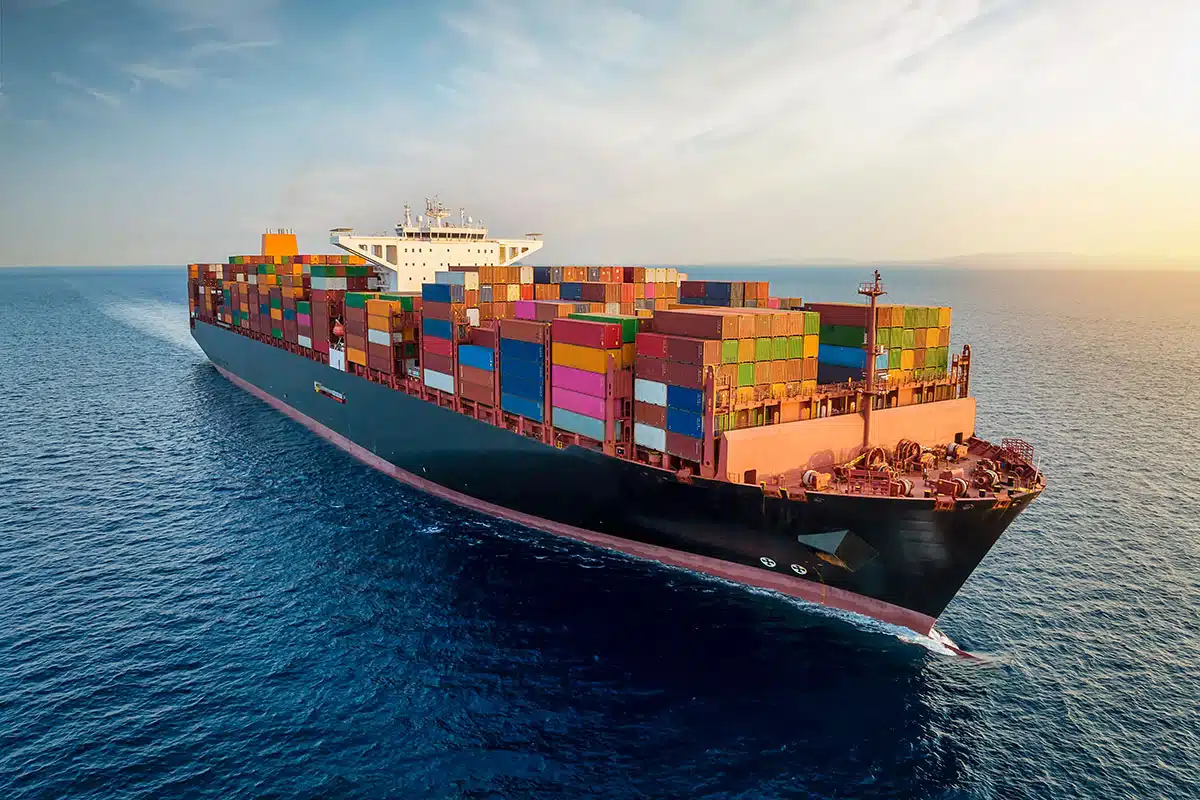San Francisco’s KCBS radio interviewed Darely Pazdel, Vice President of Workforce Inclusion at PRIDE Industries, to talk about how companies benefit from employees with disabilities during National Disability Employment Awareness Month.
NDEAM 2023
Don Nelson, Vice President of Government Facilities Services for PRIDE Industries, was interviewed on ABC-7 in El Paso by Mark Ross to call attention to National Disability Employment Awareness Month.
For decades, many American companies based their electronics manufacturing overseas because of reduced labor costs, less expensive raw materials, and tax benefits. However, recent changes—such as increased shipping costs, the Russia-Ukraine war, rising costs of foreign labor, and delivery delays—have prompted many companies to pivot and actively search for a US PCB manufacturer.
Kearney, a global management consulting firm, has been tracking this reshoring activity for over a decade, and they’ve seen the trend surge in the past few years. Their latest CEO survey reported that 96 percent of CEOs have either already reshored, decided to reshore, or are evaluating reshoring their operations. This number is a sharp increase from 2022 when 78 percent of CEOs reported these reshoring efforts.
But it’s not just shipping woes and geopolitical instability that are giving CEOs reasons to reshore. Read on to discover eight reasons why American companies are coming home.
More Control Over Production
Sending your production overseas can make it harder to keep control of your product, especially since any disputes you have with your manufacturer will be handled in foreign courts. This is a lesson that shoe retailer New Balance learned the hard way, when its Chinese manufacturing partner ignored orders from the corporate office and ordered materials for 450,000 new pairs of shoes, costing the company millions of dollars. Although New Balance sought an injunction, the Chinese courts supported the domestic subcontractor.
It’s important for companies to remember that obtaining rights in the United States does not automatically confer rights overseas.

Though this cautionary tale is from the retail sector, it’s important to keep in mind that electronics manufacturers have their cases heard in the same courts. And as some US companies have discovered, those foreign courts tend to side with domestic defendants.
Less Risk of Intellectual Property Theft
Production decisions aren’t the only rights you may be giving up when manufacturing overseas. For electronics companies, the biggest risk may very well be the loss of hard-earned intellectual property (IP). In 2018, the United States Trade Representative conducted a seven-month investigation into China’s theft of proprietary technology and branding and found that these losses cost American companies between $225 billion and $600 billion annually.
American tech company AMSC is a case in point. The company designs and manufactures technology that enables wind turbines to run efficiently. In 2018, its Chinese partner Sinovel Wind Group was convicted in a federal court in Wisconsin of stealing AMSC’s technology. But though AMSC won the case, there was little it could do to seek restitution. Today, about 20 percent of China’s wind turbines—approximately 8,000 units—are running on AMSC’s stolen software, though the company has never been compensated.
It’s important for companies to remember that obtaining rights in the United States does not automatically confer rights overseas, and that even if you register your patents and copyrights in China, IP enforcement is inconsistent. Companies that subcontract with American suppliers, on the other hand, can rely on a set of robust laws—and reliable enforcement—to protect their intellectual property.
Lowering Costs with a US PCB Manufacturer
The desire to lower costs was one of the original motivations behind offshoring. But now, the equation has flipped, with reshoring often the more economically sensible option—especially in an era of continuing supply chain uncertainty. Companies can run a leaner operation when they aren’t required to tie up extra capital in large inventories “just in case” there are manufacturing delays or shipping disruptions. Additional savings achieved with a US PCB manufacturer include eliminating import duties and the shipping costs associated with overseas production.
Reliable Communication and Collaboration
Effective communication is critical to a successful working relationship with your PCB manufacturer. Language barriers, lax communication protocols, and time zone challenges are just a few of the communication hurdles companies face when working with an overseas manufacturer. (It’s hard to expect a quick response time if your urgent 3:00 p.m. email arrives in the middle of the night in your contract partner’s location!) Avoiding these sorts of challenges is critical if you want your design, engineering, and manufacturing teams to collaborate and produce a superior product.
ESG Benefits of a US PCB Manufacturer
Increasingly, both customers and investors are looking closely at a company’s environmental, social, and governance (ESG) practices. In fact, a recent PwC survey found that 83 percent of consumers want companies to engage in ESG best practices and actively pursue concrete sustainability goals. Partnering with a US PCB manufacturer that adheres to sustainable manufacturing or employs people with disabilities, for example, will help you score points with ESG-savvy consumers and investors. And domestic manufacturing partnerships also let you add “Made in America” to your marketing campaigns.
Better Quality Control
A Consumer Reports survey found that 8 in 10 Americans express a preference for domestically made products, and that these products are often assumed to be of higher quality than imported ones. This impression may be because American-made products must adhere to stricter quality control standards. This is especially important in industries like aerospace and healthcare, where the impact on human life leaves no room for error. In these cases, a US manufacturing partner skilled in Design for Manufacturability (DFM) and Design for Test (DFT) can make the difference between a consistent, reliable product and one that faces expensive recalls.

Faster Time to Market
Companies whose customers are primarily in the United States can save significant time in shipping and transportation by manufacturing domestically. Also, being geographically close to customers can accelerate the time to market for new features and designs, making it easier for manufacturers to adjust to shifting customer needs in real time. This advantage is especially valuable in the electronics industry, where both the preferred electronic components and customer requirements change quickly.
Supply Chain Resilience
It’s easy to see how eliminating overseas shipping can make a company’s supply chain more reliable. The benefits of domestic production, however, go beyond shipping stability. Keeping production close to home also reduces sourcing issues and can increase your company’s ability to respond quickly to market changes—especially if you partner with a domestic manufacturer that prioritizes DFM. A DFM partner can help you design out custom processes, lowering both labor and material costs. And if a crucial component suddenly becomes unavailable, a DFM-savvy manufacturing partner will be able to redesign your board using readily available parts.
Qualities to Look for in a US PCB Manufacturer
There are multiple reasons companies are bringing their PCB manufacturing closer to home. But that doesn’t mean you need to manufacture in house. Kearney reports that many original equipment manufacturers (OEMs) are using contract electronics manufacturers as they seek to reset their global supply chains. However, even with domestic production, companies must still practice due diligence when choosing a manufacturer. Below are a few qualities to keep in mind when making your choice.
Experience and Expertise
Is your contract electronics manufacturer experienced in surface-mount technology and through-hole manufacturing? Are your vendor’s designers familiar with a variety of design tools, including CAD and schematic capture software?
Certifications and Compliance Experience
A review of certifications will quickly reveal a manufacturer’s abilities. At a minimum, facilities should be ISO 9001-certified. Working with a manufacturer that employs SMTA-certified SMT Process Engineers gives you extra assurance that it has the staff to handle even complex devices.
Quality Control
Does the manufacturer conduct component-level checks and in-circuit verifications in addition to visual inspections? Is the manufacturer using the latest in automated optical inspection (AOI) technology—as well as 2D and 3D X-ray inspection—to ensure durability, reliability, and quality?
Expanded Capabilities and Resources
Does the manufacturer have the ability and capacity to go beyond manufacturing? For example, do they offer design services, procurement and materials management services, forecasting and capacity planning, and logistics services? What about real-time tracking so that you can avoid product shortages or overstocking? Having a contractor that can provide multiple services will add convenience, save time, and lower costs.
An Electronics Manufacturing Partner You Can Rely On
At PRIDE Industries, our US-based, state-of-the-art facilities minimize your risk of supply chain disruption, optimize manufacturing and fulfillment processing, and provide flexible, on-demand inventory schedules. And our inclusive workforce—about 50 percent of our employees have a disclosed disability—means that working with us allows you to make a positive social impact with your business spend, while meeting consumer demand for products made in the USA.
Soapy Joe’s carwash company found a dependable source of exceptional talent with people with disabilities, one that is taking the company to new heights. The impact that these employees are having on customers as well as co-workers across many industries throughout the country has been remarkable. Learn all about it.
Prepare to be surprised. Listen to PRIDE Industries VP of Workforce Inclusion Darelyn Pazdel and Anne Mauler of 16-carwash chain Soapy Joe’s discuss the positive impact on employees and customers of hiring people with disabilities in the carwash industry.
This year, the focus is on advancing access and equity.
ROSEVILLE, Calif. – PRIDE Industries, the nation’s leading employer of people with disabilities, is once again proud to participate in National Disability Employment Awareness Month (NDEAM). Established by Congress in 1988 and observed each October, NDEAM celebrates the contributions of America’s workers with disabilities, and showcases supportive, inclusive employment policies and practices that benefit employers and employees. This year, the Office of Disability Employment Policy (ODEP) has chosen “Advancing Access and Equity” as the theme for NDEAM.
“PRIDE Industries is honored to participate in National Disability Employment Awareness Month and to celebrate the contributions of our employees with disabilities,” said Jeff Dern, President and CEO of PRIDE Industries. “NDEAM’s theme this year, ‘Advancing Access and Equity’, is a vital one, as workers with disabilities are often left out of conversations about workplace diversity, equity, and inclusion.”
More than 10 percent of working-age Americans have a disability. Historically, the workforce participation rate for working-age adults with disabilities has been around 30 percent, while the rate for persons without a disability in the same age group is about 75 percent, according to the Bureau of Labor Statistics.
Since 1966, PRIDE Industries has worked to bridge this gap by hiring people with disabilities to provide award-winning facilities management, supply chain management, manufacturing, packaging and fulfillment services, and employment services. Through its various employment programs, PRIDE Industries is helping to break down barriers and create opportunities that enable people with disabilities to succeed in the workforce.
The one-of-a-kind, bilingual (English/Spanish) I AM ABLE Employment Helpline is one of these programs. This unique helpline, which was launched in 2021, has already assisted over 3,800 individuals in California in their journey toward employment.
PRIDE Industries’ Youth Employment Services (YES!) program is another one of the social enterprise’s many innovative services. The program supports youth aged 16-24 who have disabilities. It also provides services to young people who have spent time in the child welfare, juvenile justice, or criminal legal systems, as well as those who are unhoused, live in concentrated poverty, or face other barriers to employment in Sacramento and Placer counties, enabling them to gain the skills they need to succeed in their chosen careers and to live independently. Thanks to the YES! Program, since July 2022:
- 95 youth have received comprehensive support consisting of intensive case management, work readiness, education, and on-the-job training to help them build skills and secure employment.
- 8 youth have participated in paid internships or subsidized direct employment.
- 20 youth have benefitted from unsubsidized direct job placements.
- 28 youth have received retention support in a career path of their choosing.
Now, as part of its NDEAM 2023 activities, PRIDE Industries is introducing a new employment service for people with disabilities in the Sacramento region—the first-ever I AM ABLE Disability Job Fair. Created for people with disabilities by people with disabilities, this fully accessible event will feature two dozen employers, as well as advisors from other nonprofits and government agencies that support the disability community.
“We believe that everyone deserves the opportunity to work and contribute to their fullest potential,” said Dern. “We support over 3,500 people with disabilities in their employment journey throughout the country. Every day, our operational success across multiple lines of business proves that people with disabilities provide tremendous value to all types of organizations. We show company leaders that if we can do it, so can they.”
About PRIDE Industries
PRIDE Industries delivers business excellence with a positive social impact. A social enterprise, we provide facilities operations and maintenance services, custodial services, contract manufacturing, supply chain management, packaging and fulfillment services, and placement services to private and public organizations nationwide. Founded in 1966, PRIDE Industries’ mission is to create employment for people with disabilities. Through personalized employment services, we help individuals realize their true potential and lead more independent lives. PRIDE Industries proves the value of its inclusive workforce model through operational success across multiple industries every day.
Media Contact

Kat Maudru
PRIDE Industries is a social enterprise delivering business excellence to public and private organizations nationwide.
